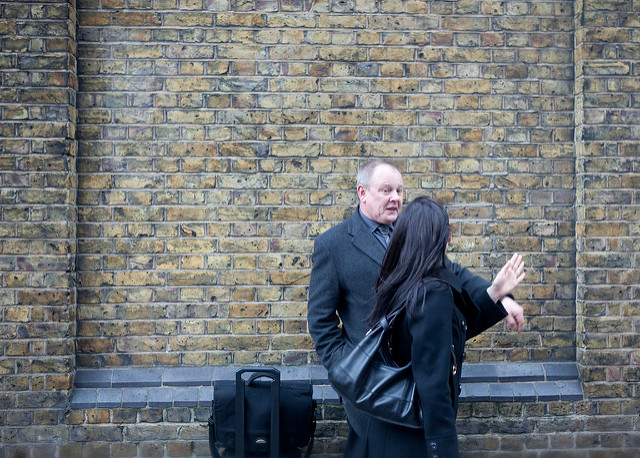
Asking for Directions
There is something about me. I may look reliable or like I know where I am going.
I walk as much as I can, and it is not unusual that I get stopped and asked for directions. Sometimes it is other pedestrians, or even people driving past. People ask me how to find the freeway or a park, certain streets or restaurants or stores.
I am not sure why I am the one they ask. I am often reflecting or trying to work out how to write something as I walk. When people stop me asking for directions I often need to reorient myself and return to where we are.
It can be a challenge, because it has been quite a while since I asked anyone else for directions. I have my friend Siri to give me directions. I also enjoy the challenge, and achievement, of finding things on my own.
Like an intrepid explorer, it is unlikely I will be asking for directions.
There are several levels to this experience of being asked for directions. Part of it is analytical, sorting out where someone wants to go and the easiest way to get there.
There is an element of trust. Even if I am their only option, they have decided to rely on the directions I will give them. I appreciate the idea they found me approachable and, seemingly, intelligent. It can be difficult to ask for help. They may have reached a certain level of frustration before they decided to talk to me.
On another level, it feels good to help people. The people who ask me for directions are not requesting money or a major time commitment. They feel a little lost or confused and they believe I can help them.
Feeling Lost and Confused
Who has never felt a little lost or confused?
We spend so much of our lives acting like we have things under control, like we know where we are going. Even when we probably could be asking for directions, we do not want anyone else to know. We can feel embarrassed or frustrated when we get confused. That is not how we want to see ourselves and we work hard to avoid feeling that way.
Asking for directions is not merely a way to find an address or a new place to get coffee. Our need for directions may run even deeper than that.
It is easy for us to feel lost and confused about spiritual life.
Some of us have never really spent much time thinking about spiritual life. We do not have much of a context for spiritual life and we need directions. It can feel like being somewhere we have never visited before.
Other people have put a lot of time and effort into a particular religion. Maybe they were raised with a specific religious background. They could have become confused or lost in how their background affects spiritual life. They may have a difficult time distinguishing spiritual life from their own experiences.
Even those of us who have paid attention to spiritual life can get confused. Spiritual life can be confusing.
When I start to feel lost or confused I try to figure things out for myself. It feels important to me that I take time to remember and sort out where I am and how I got there.
Sometimes I need help understanding things and I end up asking for directions.
Who Can Help Us Find Our Way?
We tend to assume people walking on a particular street are familiar with the area. If we are looking for a specific address they will likely be able to help us.
The fact they are walking there probably means they know where they are. We hope we can rely on their experience to help us locate where we would like to go.
There have, though, been times when I was asked for directions in unfamiliar places. I was not very helpful to the people who asked me for directions.
When we feel confused about spiritual life we want to talk with someone who knows their way around. It is important for us to find someone who appreciates both where we are and where we are headed.
We would like to talk with a person who has asked the same questions for themselves.
Like the people who stop to ask me for directions, we also want to find someone we trust. We do not want to talk with someone who is trying to persuade us to follow their path. Asking for directions in spiritual life includes both listening and explaining.
When someone asks me for directions, I need to listen to understand where they are trying to go. I cannot merely spout the directions to where I think they should go.
We are looking for someone who can help us find our way, not merely follow theirs.
Asking for Directions Well
When we are asking for directions in spiritual life it is helpful to ask well.
It is easy for us to want to leave everything up to anyone we think might be able to help. We work hard to identify a person we can trust with the experience we need. Why not leave everything to them?
We need to remember we are asking for directions, not for a ride. It is important for us to do our own exploring, especially when it comes to spiritual life.
There is more to spiritual life than doing what someone else tells us to do. They may give us very clear, specific directions. We are the people on our spiritual journey.
It is up to us to decide whether or not to follow the directions we receive.
Spiritual life lives within us and surrounds us. We choose how we will understand spiritual life and bring it to life in us.
How do we know when we need to be asking for directions?
Who will we ask to give us directions for spiritual life this week?
[Image by Lars Plougmann]
Greg Richardson is a spiritual life mentor and leadership coach in Southern California. He is a recovering attorney and university professor, and a lay Oblate with New Camaldoli Hermitage near Big Sur, California. Greg’s website is StrategicMonk.com, and his email address is [email protected].












